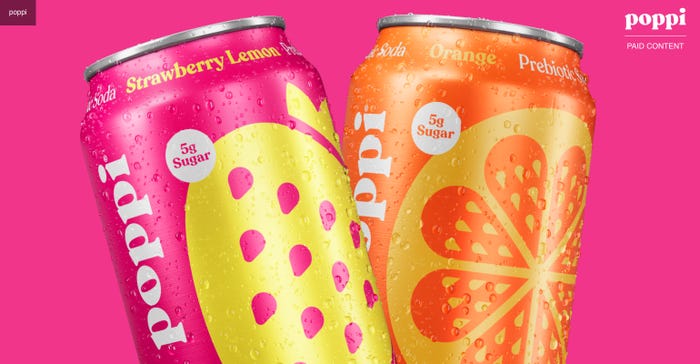
Artificial intelligence was at work in the supplement industry long before the public became fascinated with ChatGPT. It wasn’t spitting out limericks or writing essays on The Grapes of Wrath for reluctant scholars of high school lit. It was, instead, sifting through nutritional compounds looking to match an ingredient’s properties to its actions in the body and tease out benefits for human health.
There is no doubt that ChatGPT will change how consumers learn about and buy supplements, but it is the AI used by companies like Nuritas that will change what supplements can do for them. For the second time in recent years, we are bestowing NBJ’s Science and Innovation Award to a company using AI to lead development of new supplements. Two years ago, it was Britghtseed shining the machine-learning searchlight into phytonutrient compounds. This year, the award goes to Nuritas for its exploration into the properties of peptides.
To learn more about how AI will guide the industry through an area not well understood by much of the supplement industry, we spoke to Nuritas founder Nora Khaldi.
What makes Nuritas different from other AI-driven ingredient-discovery platforms?
Nora Khaldi: Nuritas is the first company that has proven an AI system in life science from discovery to clinical to commercialization. Our unique Magnifier platform identifies the best plant-sourced, cell-signaling peptides to improve our health and deliver against real consumer needs. The Nuritas artificial intelligence platform, termed the Nuritas Magnifier NπΦ, incorporates large-scale analysis of multiple ‘omics’ data [data from fields such as genomics, proteomics, etc.], manufacturing and biological data with AI to discover novel health-benefiting ingredients.
What are some of the conditions or health categories you think will be a focus?
Khaldi: Right now, one of our strategies is to develop sustainable biological catalysts to maintain healthy aging in the general population. At Nuritas, our solution is to discover beneficial peptides in nature, unlock them from their protein source, clinically demonstrate their efficacy and produce them with the aim of improving people’s health and longevity. Our mission is to change the life of billions.
What are you working on now?
Khaldi: Nuritas has recently published results of two clinical studies on its next-generation ingredient PeptiStrong. Unlocked from fava beans, with self-affirmed GRAS and Health Canada-approval, PeptiStrong contains cell-signaling peptides and, when compared against milk proteins, was found to improve the rate of muscle-protein synthesis during recovery in our first study carried out in Maastricht University. And in the second clinical trial, carried out in the Sports Surgery Clinic, PeptiStrong was found to significantly improve strength recovery and reduce fatigue, following muscle injury, as well as positively modulating muscle health biomarkers. This is a revolution; we are demonstrating that the next-generation solutions for muscle health have been dormant in nature for millions of years. We clearly lacked the technology to identify and unlock them. Nuritas is pioneering a next generation of ingredients sourced in plants that will bring our everyday products to a whole new level.
The industry doesn’t do a lot of work with peptides. Is it a missed opportunity or has nobody figured it out yet?
Khaldi: At Nuritas, we believe that peptides are the future of intelligent ingredients when unlocked and manufactured with precision technology. Peptides are cell-signaling; they complement any nutritional approach by stimulating natural pathways in our body to help it work at its best. You could look at them as extremely precise and targeted biological catalysts (with an excellent safety profile). To exert this cell signal, we need to unlock specific peptides with precision. This is what the industry has not figured out yet. At Nuritas, we have a proprietary process to unlock specific peptides with precision and characterize them in every manufacturing batch. This is a game-changing feature for health and wellness, in topical but also oral solutions.
Your first efforts are aimed at aging. Why is that?
Khaldi: The global population is aging. You see a rise in chronic disorders, and there is a need for nutritional interventions to maintain health as we age. Our focus was on this large area of unmet need but also upcoming aging issues like muscle health. And a main benefit of peptides that we are seeing right now is their extraordinary ability to assist with muscle health overall. There are many more benefits that we are currently working to unlock outside of fighting the negative effects of aging.
What are some of the unanswered challenges for nutrition in healthy aging?
Khaldi: Aging is not a one-target approach; there are many factors involved, and you have to go after multiple mechanisms at the same time. For example, two factors of aging are metabolism and age-related inflammation. As we age, these factors slow down. We know bioactive peptides affect health span and longevity. That is why we go after unlocking these peptides at Nuritas.
How big is the market for muscle building outside of sports?
Khaldi: Muscle health and muscle aging are the next top issue for consumers. As we age, everyone experiences muscle decline, which can have a significant impact on quality of life. If we can maintain muscle health, we can prevent a negative shift in the balance of muscle synthesis and muscle loss, providing consumers with a way to live healthier lives for longer.
What have you learned in the development process that will drive future research?
Khaldi: Our AI platform, the MagnifierTM, is discovery agnostic, meaning we can pivot into a new health benefit or consumer need quickly, accurately and precisely. This allows us to work in complex and multi-faceted areas which require solutions that target each of these needs in a single ingredient. However, the biggest learning was that discovery alone is not sufficient. The active molecules needs to be commercially viable, meaning can be easily formulated, scaled, delivered, etc. And all these are challenges that we had to build AI systems for—so that we can predict them all at the discovery level to reduce the risk on development.

We’ve seen AI aimed at ingredient discovery in phytonutrients and food ingredients. How wide is the scope for the supplement industry?
Khaldi: Identifying an active molecule through AI or other means is industry agnostic.
The ability of AI to navigate and decipher complex data sets has created an opportunity to explore and unlock health-benefiting, naturally derived ingredients. Additionally, AI can not only discover ingredients but give clear scientific reasons as to why an ingredient works or does not work for us. We see consumers demanding more knowledge about the ingredients they consume, giving them more control over their own health. AI allows for this from the beginning of the discovery lifecycle.
Will AI drive incremental change or be transformative?
Khaldi: AI has already shown that it is radically transforming the industry. Putting it simply, it comes down to feasibility: We couldn’t achieve what we are doing today without AI. This goes beyond the benefits of increasing pace and accuracy; rather, without this technology, the health-promoting molecules that AI allows us to discover would likely remain unknown to humans, maybe indefinitely. In the food industry, AI makes it feasible for us to unlock previously untapped “intelligent” ingredients from nature, allowing us to break the decades-old cycle of poor quality products. AI is simply the only way to accomplish this.
What’s next for Nuritas?
Khaldi: Over the next few years, Nuritas aims to revolutionize the ingredient business and to reach billions of people with its life-changing ingredients targeting significant areas of lifespan, such as cardiometabolic health, bone and cartilage health, neurocognition and muscle health, along with energy and vitality.
The NBJ 2023 Awards issue is available at no cost on the NBJ app or through the NBJ store. Subscribe today to the Nutrition Business Journal.
Read more about:
InnovationAbout the Author
You May Also Like






